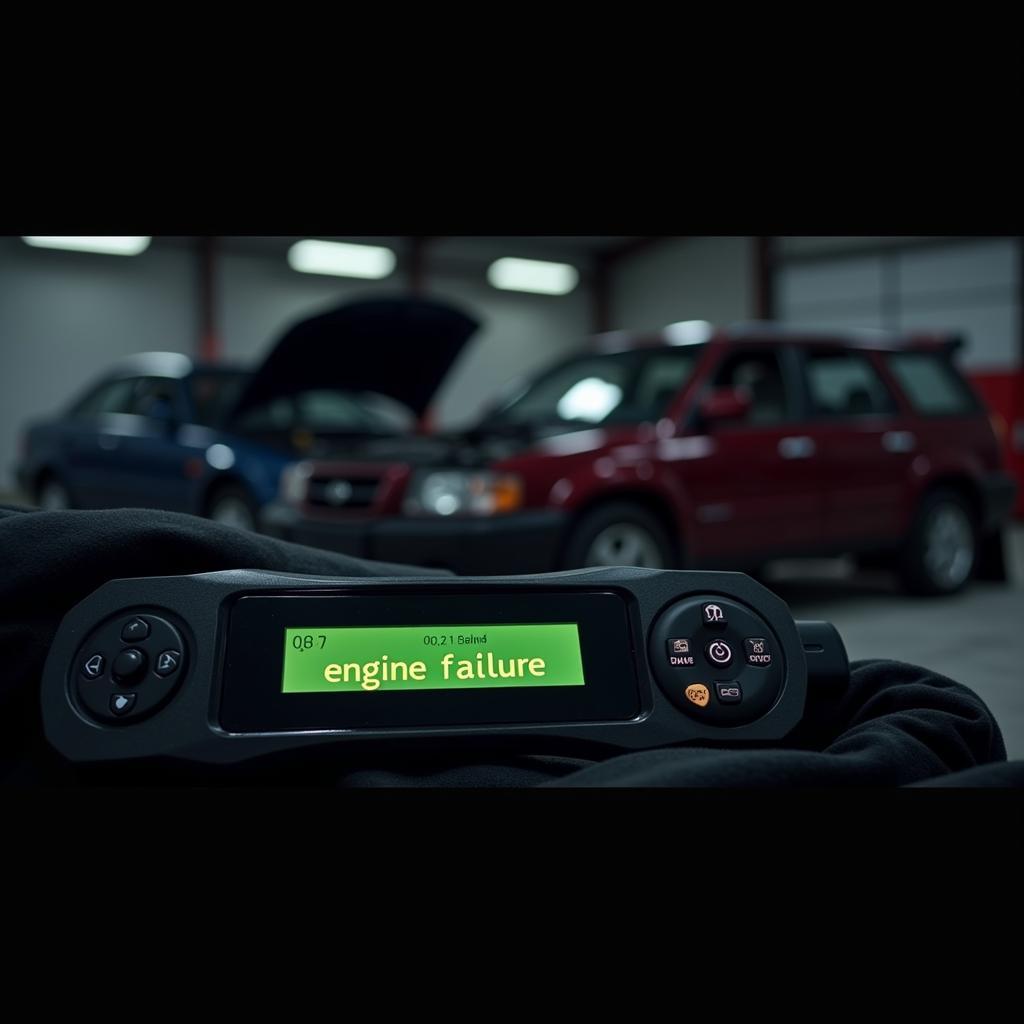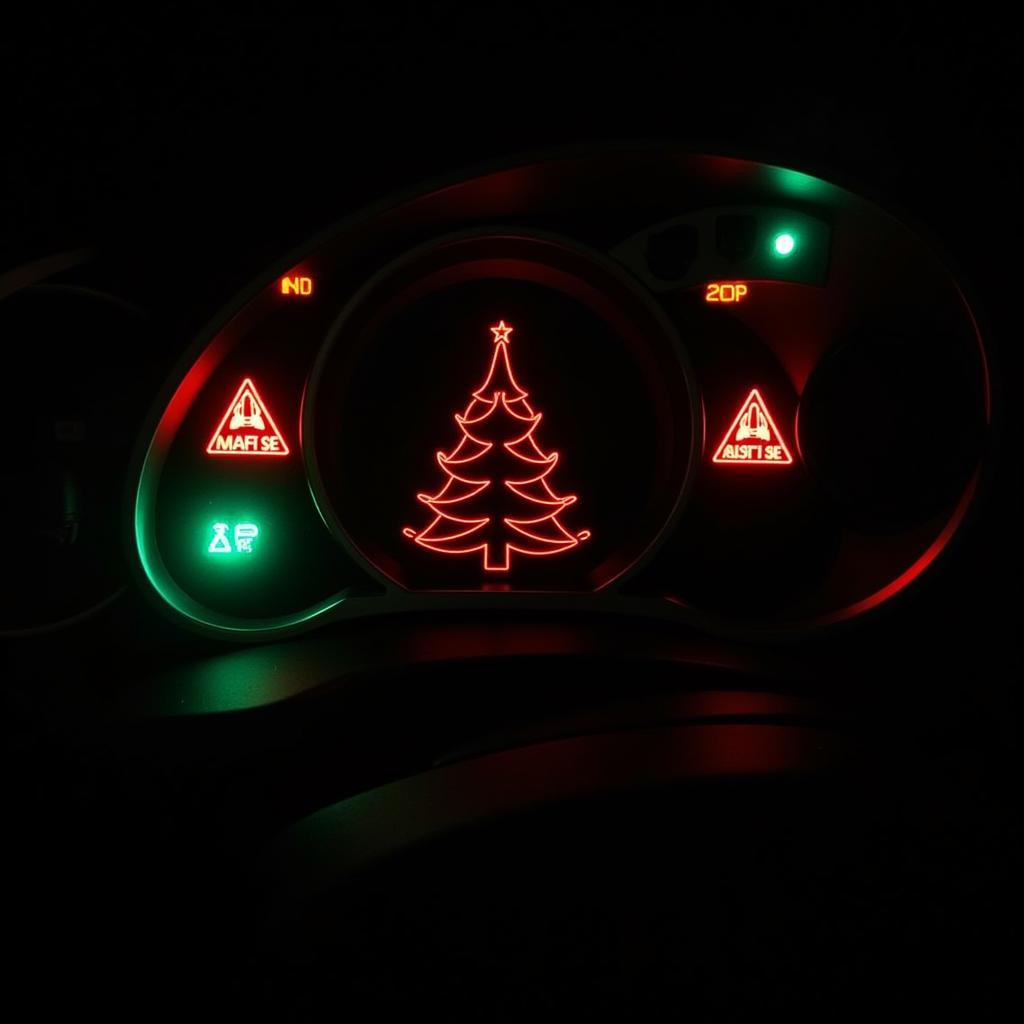Getting a car diagnostic test can feel like stepping into the unknown. You’re hoping for a simple fix, but what if the test reveals something worse? What’s the worst possible outcome?
While a check engine light can signal anything from a loose gas cap to a serious engine problem, some diagnostic test results are more daunting than others. This article delves into those worst-case scenarios, explaining the issues, their implications, and potential costs.
The Heart of the Matter: Severe Engine Problems
 Car diagnostic scan showing engine failure
Car diagnostic scan showing engine failure
One of the most dreaded outcomes of a car diagnostic test is the discovery of a severe engine problem. This could be anything from a blown head gasket to worn piston rings, a cracked engine block, or even complete engine failure.
Expert Insight:
“Engine issues are often complex and costly,” says John Miller, a veteran mechanic with over 20 years of experience. “Diagnosing the exact problem requires a thorough inspection, and repairs can range from hundreds to thousands of dollars depending on the severity and the car model.”
These issues often manifest through symptoms like loss of power, excessive smoke from the exhaust, strange noises from the engine, and overheating. If your diagnostic test points towards any of these problems, immediate attention from a qualified mechanic is crucial.
Transmission Troubles: A Costly Affair
 Car diagnostic scanner displaying transmission error code
Car diagnostic scanner displaying transmission error code
The transmission is another critical component of your car, responsible for transferring power from the engine to the wheels. A diagnostic test revealing transmission problems can be a major blow to your wallet.
Common issues include:
- Slipping gears: This feels like the engine is revving but the car isn’t accelerating as it should.
- Rough shifting: You might experience jolting or shaking when shifting gears.
- Transmission fluid leaks: Check for red fluid underneath your parked car.
Addressing transmission problems often involves costly repairs, and in some cases, a complete transmission replacement might be necessary.
The Dreaded Electrical System Failure
 Car dashboard illuminated with multiple warning lights
Car dashboard illuminated with multiple warning lights
Modern cars rely heavily on complex electrical systems. While a diagnostic test can pinpoint electrical faults, the worst-case scenario involves a major system failure. This could mean:
- Faulty ECU (Engine Control Unit): The brain of your car’s engine might need replacement, a costly repair.
- Wiring harness problems: Extensive damage to the wiring harness can be expensive and time-consuming to repair.
- Sensor malfunctions: While individual sensor replacements are usually manageable, multiple sensor failures can indicate a larger underlying issue.
Conclusion: Don’t Ignore the Warning Signs
While a car diagnostic test can uncover unsettling truths about your vehicle’s health, it’s important to remember that early detection is key. Addressing issues promptly can prevent further damage and potentially save you from hefty repair bills down the line. If your diagnostic test reveals any of these worst-case scenarios, consult a trusted mechanic immediately to discuss your options and the best course of action.
FAQs
Q: How often should I get a car diagnostic test?
A: It’s generally recommended to get a car diagnostic test annually or whenever your check engine light comes on.
Q: Can I drive my car with a check engine light on?
A: While driving short distances with the check engine light on might be possible, it’s crucial to get it checked as soon as possible to prevent potential damage and ensure your safety.
Q: Are all car diagnostic tools created equal?
A: No, diagnostic tools vary in their capabilities. Professional-grade tools used by mechanics offer more comprehensive information and accuracy compared to basic OBD-II scanners.
Need Help? We’re Here for You!
Facing a daunting car diagnostic result? Don’t panic! Our team of car diagnostic experts is available 24/7 to answer your questions and provide guidance. Contact us via WhatsApp at +1(641)206-8880 or email us at [email protected] for immediate assistance. We’re here to help you navigate the complexities of car repair and make informed decisions about your vehicle.

Leave a Reply